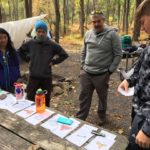 My name is Quinton Waddy, I am the Outdoor Ethics Guide for Troop 1188 in Manassas, VA. I am a Life Scout working on my Eagle Scout rank. During a weekend in October my father and I took the Leave No Trace Trainer course, which is recognized by Scouts BSA, and the Leave No Trace Center for Outdoor Ethics. The Cub Scout, Scouts BSA, Venturing, and Sea Scout programs all include outdoor stewardship, care for the environment, and Leave No Trace as part of their programs. This Course is designed to enhance your understanding of Leave No Trace practices and outdoor ethics, and to increase your level of expertise and confidence in teaching Leave No Trace skills.
My name is Quinton Waddy, I am the Outdoor Ethics Guide for Troop 1188 in Manassas, VA. I am a Life Scout working on my Eagle Scout rank. During a weekend in October my father and I took the Leave No Trace Trainer course, which is recognized by Scouts BSA, and the Leave No Trace Center for Outdoor Ethics. The Cub Scout, Scouts BSA, Venturing, and Sea Scout programs all include outdoor stewardship, care for the environment, and Leave No Trace as part of their programs. This Course is designed to enhance your understanding of Leave No Trace practices and outdoor ethics, and to increase your level of expertise and confidence in teaching Leave No Trace skills.
My experience taking the LNT Trainer course was amazing. You can take the course in a car-camping setting or as a backpacking trip, I chose the backpacking trip for a more hands-on experience. I met many wonderful people and made new friends. There are seven parts to LNT: Plan Ahead and Prepare; Travel and Camp on Durable Surfaces; Dispose of Waste Properly; Leave What You Find; Minimize Campfire Impacts; Respect Wildlife; and Be Considerate of Other Visitors.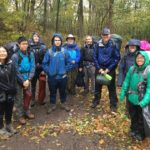
I enjoyed my time learning about the different parts of LNT from keeping our environment clean to digging cat holes. I went in thinking it was going to be an awkward and boring weekend, but I enjoyed every second of it because of the fun and games each trainee had planned for their subjects they had to teach. I taught Pack it in Pack it out. I had my fellow trainees play a matching game with the time it takes an item to be processed back into the earth and the chronological order of them to degrade. They had a fun time figuring it out and it worked on their communication, leadership, and teambuilding skills. The program gets everyone in attendance involved, anyone participating will teach a subject and play the games that are created by the teacher of each subject.
This program has helped me and my Troop out so much already. I had the Scouts in my Troop and in the Cub Scouts practice Leave No Trace while they were doing Scouting for Food. Leave No Trace is a great program and I recommend that all Scouts take it because it goes more in depth to the meaning of our Outdoor Code.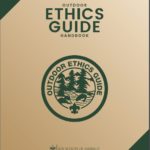
Here is a website on LNT and Tread Lightly where you can take online quizzes and earn awards. https://www.scouting.org/outdoor-programs/outdoor-ethics/awards/scouts-bsa/

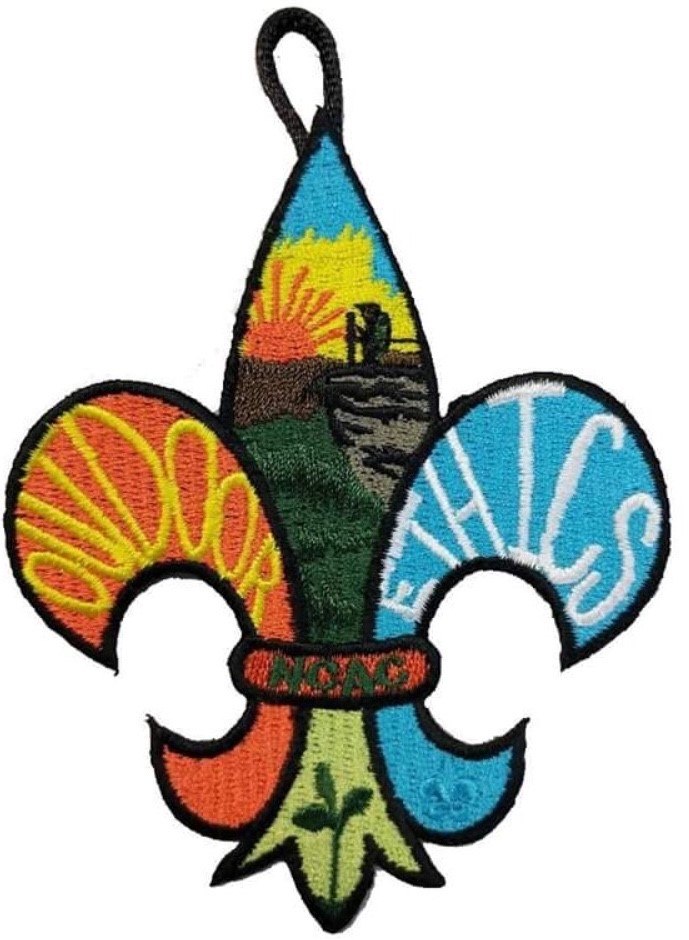
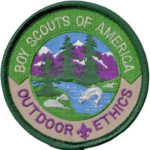 The Outdoor Ethics Awareness course is an action & information-packed introductory course that teaches attendees the BSA version of outdoor ethics:which includes Leave No Trace, Tread Lightly, and the Land Ethic. The course is suitable for scouters and mature scouts. We hope as many units as possible are able to send at least 2 scouts and 1 scouter; this will allow your unit to have youth & adult members qualified to lead Outdoor Ethics at all outdoor events and help your scouts & scouters complete some of the requirements to earn the Outdoor Ethics Awareness award for Scouts https://www.scouting.org/outdoor-programs/outdoor-ethics/awards/scouts-bsa/ or NCAC award for Cub Scouts http://www.ncacbsa.org/wp-content/uploads/2017/12/New-NCAC-Outdoor-Ethics-Awareness-award.pdf
The Outdoor Ethics Awareness course is an action & information-packed introductory course that teaches attendees the BSA version of outdoor ethics:which includes Leave No Trace, Tread Lightly, and the Land Ethic. The course is suitable for scouters and mature scouts. We hope as many units as possible are able to send at least 2 scouts and 1 scouter; this will allow your unit to have youth & adult members qualified to lead Outdoor Ethics at all outdoor events and help your scouts & scouters complete some of the requirements to earn the Outdoor Ethics Awareness award for Scouts https://www.scouting.org/outdoor-programs/outdoor-ethics/awards/scouts-bsa/ or NCAC award for Cub Scouts http://www.ncacbsa.org/wp-content/uploads/2017/12/New-NCAC-Outdoor-Ethics-Awareness-award.pdf
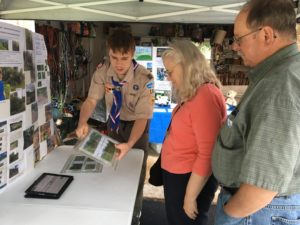 Scouts displayed their conservation projects as part of the Sustainable Garden Tour hosted the weekend of June 9 by the Northern Virginia Soil and Water Conservation District. The annual garden tour features homes, churches, schools, and libraries with native plant landscaping, rain barrels, wildlife habitat, composting, rain gardens, and grass-free front yards.
Scouts displayed their conservation projects as part of the Sustainable Garden Tour hosted the weekend of June 9 by the Northern Virginia Soil and Water Conservation District. The annual garden tour features homes, churches, schools, and libraries with native plant landscaping, rain barrels, wildlife habitat, composting, rain gardens, and grass-free front yards.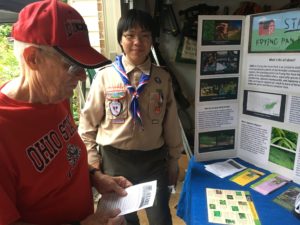 Another other Eagle Scout discussed his project to remove highly-invasive Japanese stiltgrass at Frying Pan Farm Park in Herndon, Virginia. He orchestrated several work days for Scouts and the public. During the second phase of his project, he led volunteers to plant common milkweed and other native plants in the area where the stiltgrass had been removed. This project also collaborated with the IMA program and helped the Scout earn the a Hornaday Award in addition to his Eagle Scout Award.
Another other Eagle Scout discussed his project to remove highly-invasive Japanese stiltgrass at Frying Pan Farm Park in Herndon, Virginia. He orchestrated several work days for Scouts and the public. During the second phase of his project, he led volunteers to plant common milkweed and other native plants in the area where the stiltgrass had been removed. This project also collaborated with the IMA program and helped the Scout earn the a Hornaday Award in addition to his Eagle Scout Award.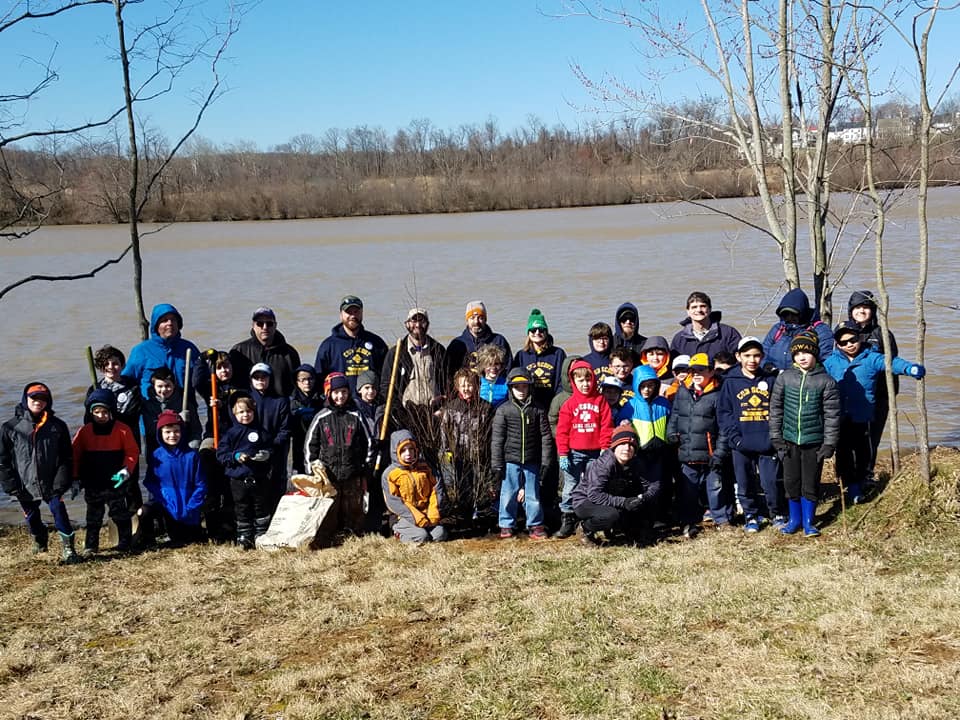
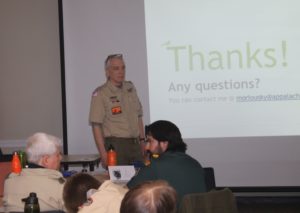 The National Capital Area Council (NCAC) Outdoor Ethics Committee recently held it’s fourth annual Mid-Atlantic Outdoor Ethics Community Meeting at the Marriott Scout Service Center. The event brings together Leave No Trace Trainers and Master Educators from around the region to receive updates on the latest trends in Outdoor Ethics, to share information, and enjoy fellowship. This year’s event drew 35 participants including the Leave No Trace State Advocates for Maryland, Virginia, and Pennsylvania, the Council Outdoor Ethics Advocates for NCAC, Hawk Mountain Council, Cradle of Liberty Council, Garden State Council, and the Colonial Virginia Council, and the BSA Area 6 Outdoor Ethics Advocate.
The National Capital Area Council (NCAC) Outdoor Ethics Committee recently held it’s fourth annual Mid-Atlantic Outdoor Ethics Community Meeting at the Marriott Scout Service Center. The event brings together Leave No Trace Trainers and Master Educators from around the region to receive updates on the latest trends in Outdoor Ethics, to share information, and enjoy fellowship. This year’s event drew 35 participants including the Leave No Trace State Advocates for Maryland, Virginia, and Pennsylvania, the Council Outdoor Ethics Advocates for NCAC, Hawk Mountain Council, Cradle of Liberty Council, Garden State Council, and the Colonial Virginia Council, and the BSA Area 6 Outdoor Ethics Advocate.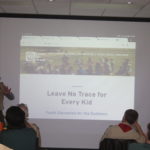 The group received an update from Paul Sanford, National Director of Recreation Policy at the Wilderness Society. Paul gave a great overview of the Wilderness Society, land designation under the Wilderness Act, the importance of wilderness, and the current issues in wilderness recreation. His talk was very well received by the group and will be used to help shape our ongoing awareness and educational efforts. Paul indicated that the Wilderness Society will soon be releasing a wilderness curriculum aimed at middle and secondary school age youth. We will post this information on the Outdoor Ethics page of the NCAC website once it is released.
The group received an update from Paul Sanford, National Director of Recreation Policy at the Wilderness Society. Paul gave a great overview of the Wilderness Society, land designation under the Wilderness Act, the importance of wilderness, and the current issues in wilderness recreation. His talk was very well received by the group and will be used to help shape our ongoing awareness and educational efforts. Paul indicated that the Wilderness Society will soon be releasing a wilderness curriculum aimed at middle and secondary school age youth. We will post this information on the Outdoor Ethics page of the NCAC website once it is released.